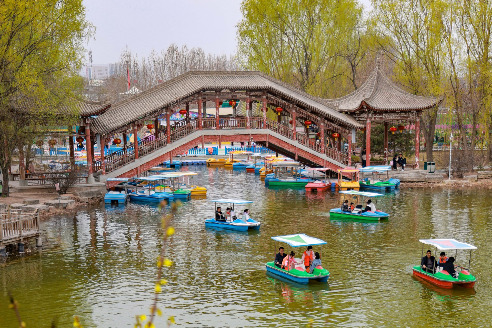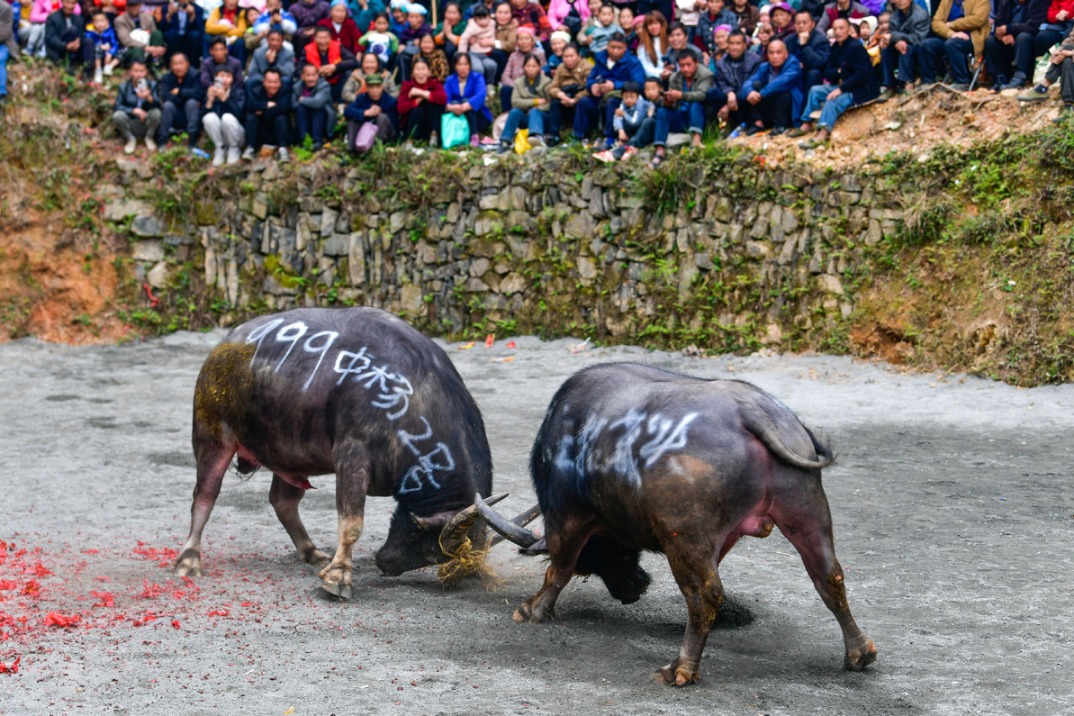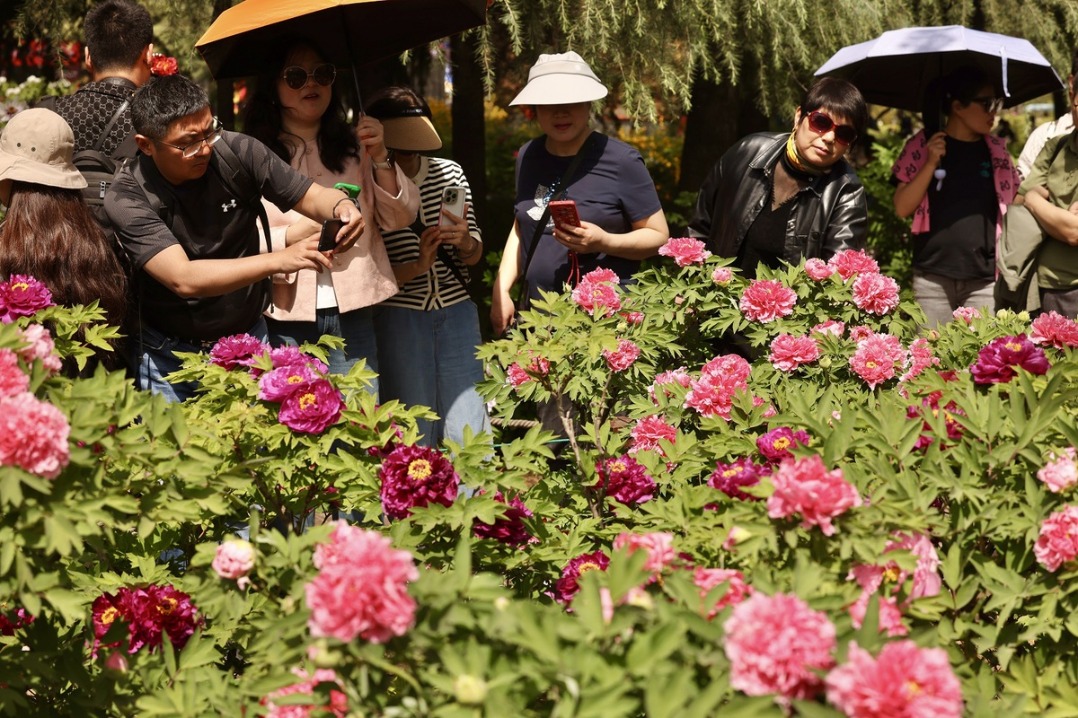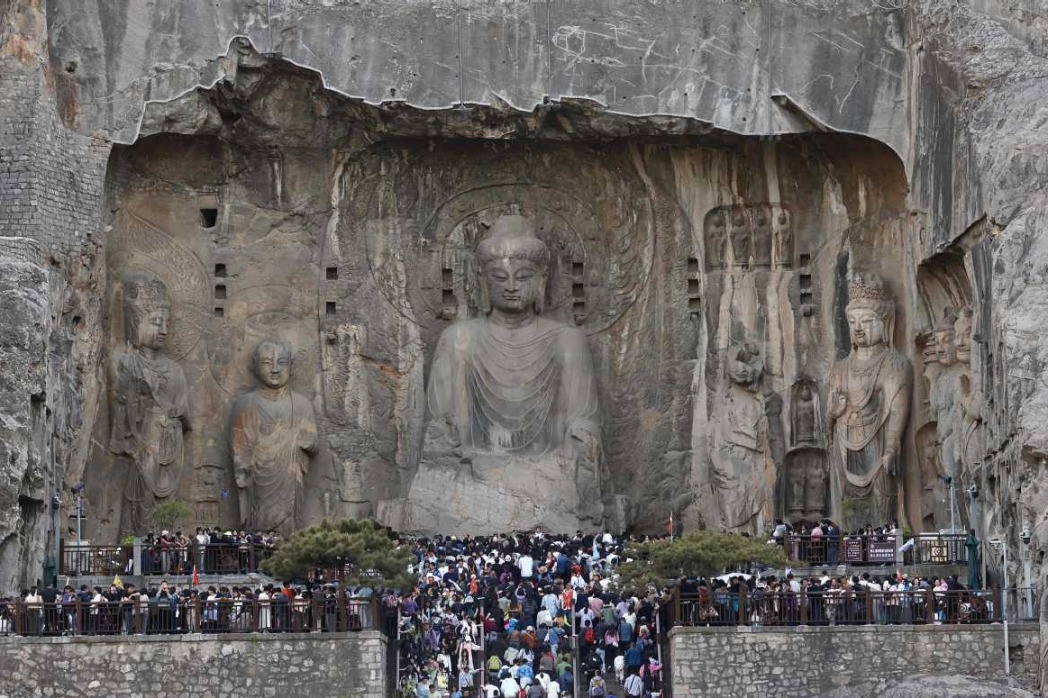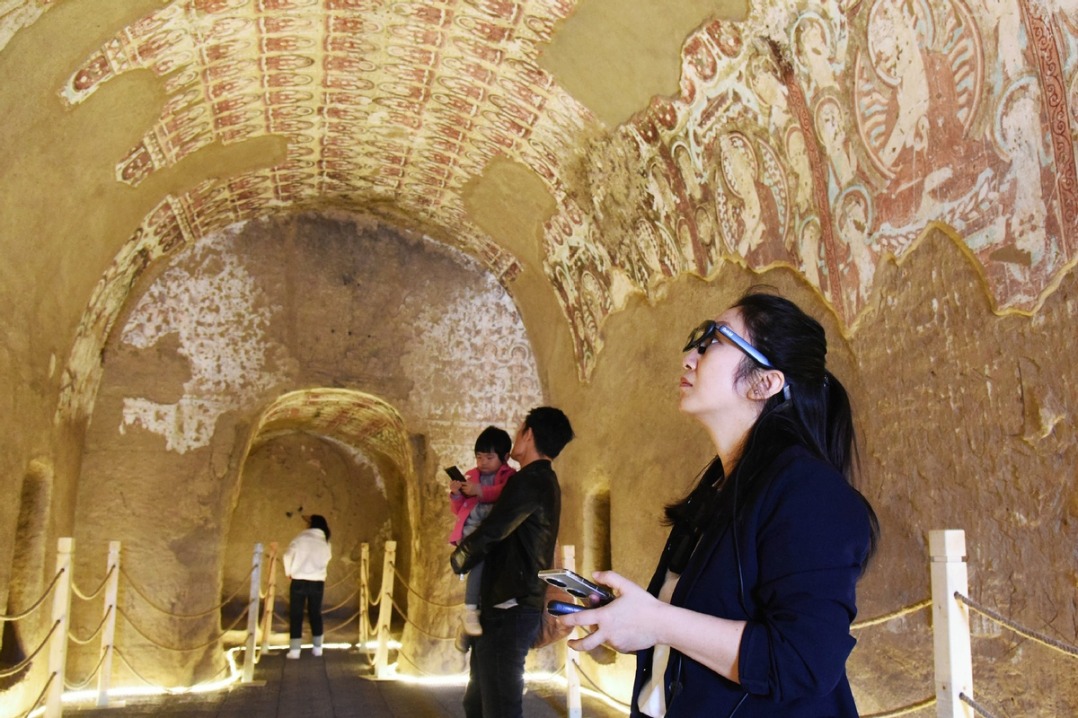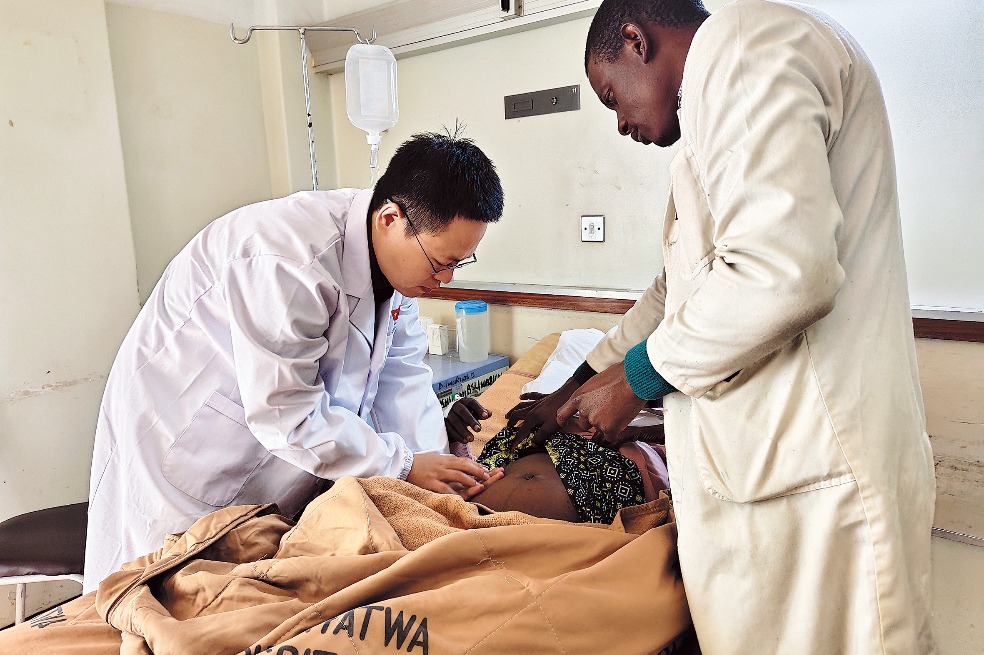Martyr's grave maintained by family through generations
Tending to tomb has evolved into monthly tradition of respect, honor

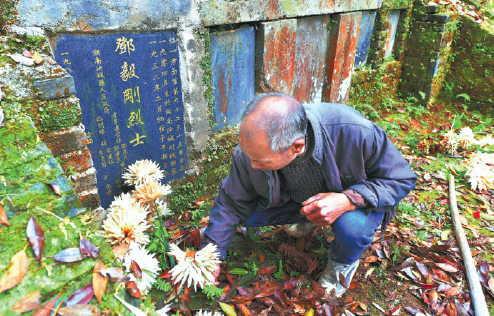
Before this year's Qingming Festival, or Tomb-Sweeping Day, on Friday, Xie Nanjing methodically cleared away weeds and fallen leaves from a grave in a small village in Ganzhou city, Jiangxi province.
Nestled among green bamboo and cypress trees in Shihan village, the grave belongs to Deng Yigang, a former commander of the Red Army.
After carefully tidying the site, Xie sat in front of the tombstone and said in a hushed tone, "Commander Deng, I've come to visit you again."
It is a ritual he repeats almost every month. As a result, it has become a familiar sight for the villagers.
Xie is the third-generation guardian of Deng's grave. For 93 years, his family has passed down the tradition from his grandfather to his father, and now to him.
The story dates back to February in 1932, when Deng was shot and critically wounded on the front line while leading an attack on a fortress near Ruijin city in Ganzhou.
"After the battle, my grandfather, Xie Shiyan, found Deng hiding in a small mountain hollow in Shihan village and brought him home under cover of darkness. Unfortunately, Deng succumbed to his injuries and passed away half a month later," Xie Nanjing said.
Deng died at the age of 28 due to excessive blood loss. After Deng's burial, Xie Shiyan told his son Xie Benrong: "The Red Army fought for the people and the country without fear of sacrifice. Our duty is to take good care of the martyrs' graves."
Since then, Deng's grave and those of nearly 20 other unnamed martyrs have remained undisturbed. In the 1970s, Xie Nanjing and his father, concerned about potential mudslides, moved Deng's grave to a nearby location. Due to limited resources, they could not erect a tombstone at the time.
In 1981, after saving money originally intended for building a house, Xie Benrong and Xie Nanjing decided to commission proper tombstones. They erected a separate one for Deng and four tombstones for the 22 unnamed martyrs, combining them into a large tomb.
"Xie Nanjing lived a frugal life. He wouldn't even buy himself new clothes or shoes, yet he spared no expense in refurbishing Commander Deng's grave," said Feng Liangming, a member of the Kuantian Township Party Committee.
In 2009, Xie Nanjing invested over 3,000 yuan ($413) to have a marble tombstone made for Deng, and constructed a drainage system, making the entire grave site solemn, clean and tidy.
In 2001, Xie Benrong suffered a sudden cerebral hemorrhage. Before he died, he repeatedly told his children and grandchildren that they must "take care of Deng as you would do for your ancestors and visit his grave every year".
This tradition has since become a family rule. Every Qingming Festival, all members of the Xie family gather to clean Deng's grave.
"The family has taken care of Deng's grave, rain or shine. From the grandfather's generation, guarding for more than 90 years, it has already reached five generations," said Zhu Dongsheng, the village's Party secretary.
Deng's great-grandson and others initially planned to move his remains to their ancestral home in Hunan province. However, moved by the grave's pristine condition and the Xie family's reverence, they chose to leave the remains undisturbed. At the graveside, Xie brushed dirt from his calloused hands, shouldered his hoe, and said: "In the past, you (Commander Deng) suffered without medical care or even a hot meal. My grandfather carried that guilt. Now, with paved roads at our doorstep, we live in comfort and prosperity."
In November, Xie Nanjing was recognized as one of the Good Samaritans of China for his family's commitment to protecting Red Army martyrs' tombs.
zhaoruinan@chinadaily.com.cn


















